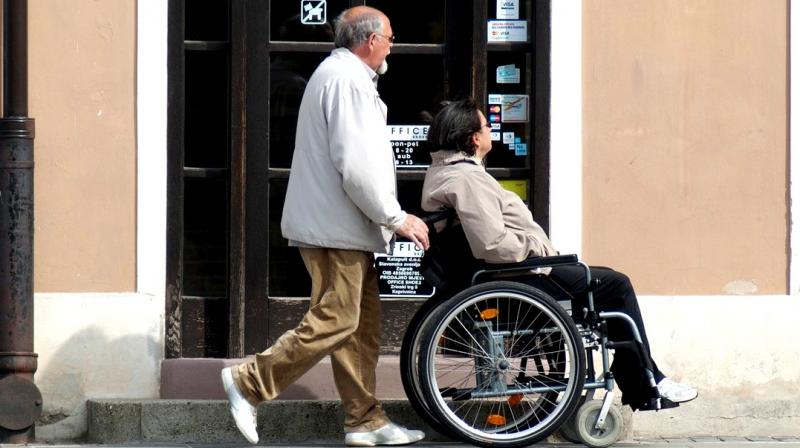#SayTheWord reclaiming the term ‘disability’
Usage of the word \'disability\' essential to support disability culture.

Washington: Researchers are now encouraging the use of the term 'disability' in order to recognise disability as a valued aspect of diversity and identity.
"Attempts to avoid the use of the word 'disability' and couch discussions in positive terminology or euphemisms can have unintended consequences. Avoiding the term reinforces the idea that disability is a negative or undesired state," said Carrie Pilarski, a researcher.
In the study published in Rehabilitation Psychology, Pilarski and colleagues challenge a trend toward removal of the term disability in the hope of improving disability cultural competency. Pilarski said that while the term disability is widely used and universally accepted, often there are other terms substituted, such as 'differently-abled', 'special needs', and 'physically challenged'.
"People use these terms because they see them as accentuating the strengths of people with disabilities. But despite the good intention, these terms are euphemisms that deny recognition of disability as a valued aspect of diversity and identity," she said.
"The study was a natural discussion among female psychologists with disabilities who recognise the importance of supporting disability culture both personally and professionally," she added. In the study, Pilarski and her co-authors analysed the history of disability language, attitudes around disability language and disability as an identity, to demonstrate why the term 'disability' is an important part of disability culture.
While Pilarski noted that avoiding the term disability has the unintended consequence of reinforcing ideas that disability is negative, the authors also explained the harmful effects of focusing on individuals with disabilities as inspirational.
"We want readers to understand that there is such a thing as 'inspiration porn' and this serves to objectify individuals with disabilities for inspiration. We also discuss balancing using person-first and identity-first language to help support the recognition that disability is an aspect of identity," Pilarski said.
In addition, the authors discussed the role of social media in disability identity and social justices. "Social media has truly invigorated the disability justice movement. There have been many viral hashtags for disability issues, such as #cripthevote, #iamapreexistingcondition and #thisiswhatdisabilitylookslike, that have helped not only with personal identity but with highlighting the culture and recognising the history of oppression, especially at a time when disability rights and services are being rolled back on a national level," said Pilarski.
"#SayTheWord was created by people with disabilities to claim the term disability as a valued aspect of diversity, support solidarity within the disability community and encourage those without a disability to stop tiptoeing around the term and use it," said Pilarski. "This campaign is very much encouraging disabled people to reclaim their identities, community and pride."
The authors also discussed how the #SayTheWord movement is helping to highlight social injustices in the disability community. "We also discuss in the commentary the role of psychology in supporting the understanding of disability as an aspect of diversity with social justice implications similar to other marginalised groups, such as the Black Lives Matter movement and the Me Too movement," Pilarski said.
"We're not trying to make comparisons or to equate experiences when we reference these other groups," she said. "We're saying that failure to recognise disability as an aspect of diversity, similar to other marginalised groups, also has unintended consequences of reducing supports available for individuals with disabilities and their formation of positive disability identity."
"Psychologists and other providers or mentors should honour others' language preference while opening up a dialogue about the underlying attitudes and beliefs that shape their preferred selection of terminology," said Pilarski.
She added, "We hope that future research can centre on disabled voices in order to support solidarity in the disability community, pride in disability identity and activism for social justice with reclaiming equal access and rights in legislation and policies."

